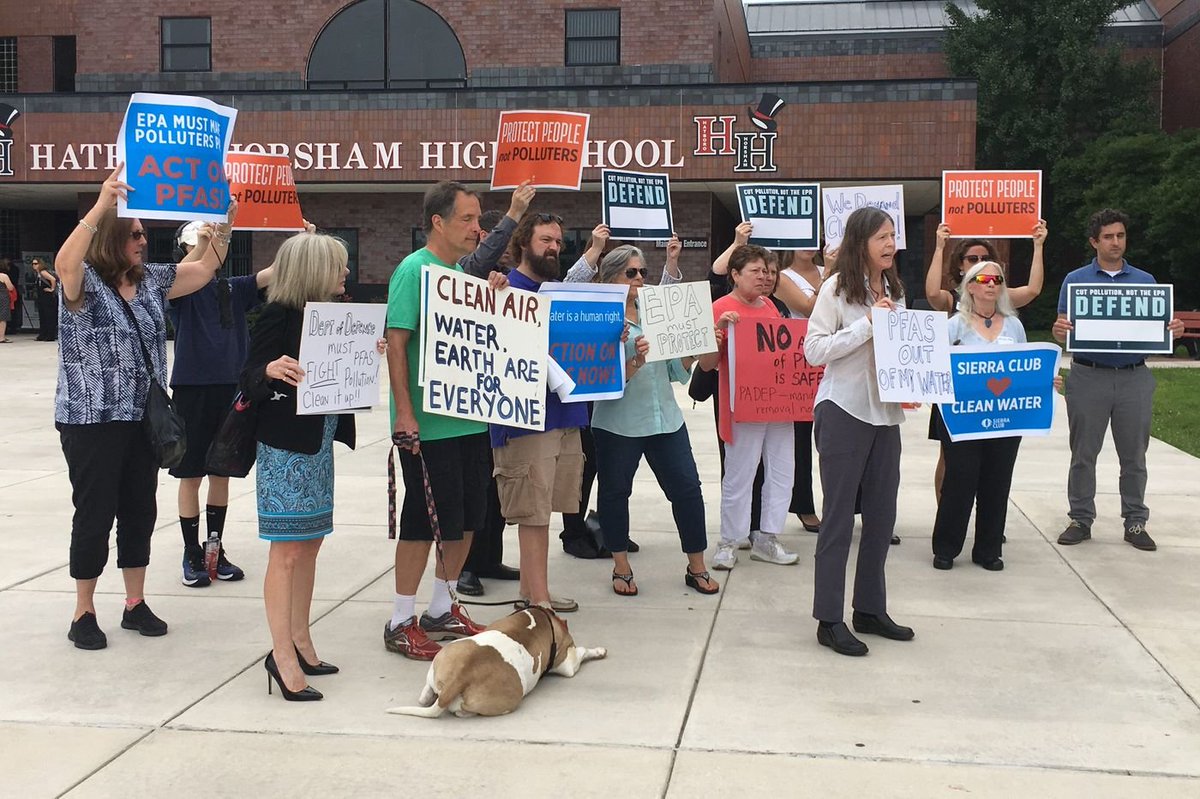Our country’s toxic legacy—a historical failure to safeguard communities from industrial chemicals—is on full display lately. The evidence is mounting about widespread contamination by a family of industrial chemicals known as PFAS. Once again, man-made chemicals are being treated as innocent until proven guilty. Millions of Americans are being exposed to harmful chemicals while the Environmental Protection Agency and the military have taken little action to solve the problem.
PFAS are manmade chemicals that were discovered in the 1940s that are incredibly stable don't break down once they enter people’s bodies or the environment. Although useful for some functions, such as fighting fires and providing waterproofing to materials, their persistence means that PFAS chemicals stay around forever. They accelerate up the food chain—bioaccumulating and contaminating our environment, including the drinking water supplies of more than 100 million Americans. PFAS are measured in nearly everyone, even in remote parts of the planet like the Arctic.
PFAS harm virtually every part of the human body. The chemicals increase the risk of developing cancer, thyroid problems, and kidney damage. Prenatal and childhood exposures can permanently impair children's health and development. Despite their toxicity, they are still not included in any major environmental laws. The EPA and the military have been slow to address the PFAS crisis—leaving states and local communities with no clear route to end their harmful exposures.
After decades of neglect, communities need effective and rapid support. That’s why the Sierra Club is joining affected communities to push for an end to ongoing uses and releases of PFAS into the environment. Even the most basic actions—tracking PFAS emissions and cleaning up polluted places—require action by Congress, since the Trump administration has proven useless at safeguarding our environment.
The good news is that this month we’ve seen positive signs that congressional leaders are beginning to understand the extent of the PFAS crisis and are taking the action needed to protect people from contamination.
Members of Congress introduced more than 20 bills this session that deal with closing the loopholes on PFAS regulation, allocating money to document the extent of contamination and providing resources for those most affected by the chemicals. Collectively, the bills represent a strong vision of a future—one where communities are protected from these unnecessary and harmful chemicals.
Here is a brief overlook at what congressional leaders are proposing:
Holding the EPA Accountable to Do Its Job: PFAS are exempted from most major environmental laws, such as the Clean Water and Clean Air Acts. This is because—although the hazards of PFAS have been known by chemical companies since the 1960s and 70s—there wasn’t public awareness of their hazardous properties when major environmental laws were enacted. Since the EPA hasn’t taken any meaningful action to control PFAS emissions, congressional bills now being considered will require it to do so. One of the most promising first steps is the bipartisan PFAS Right to Know Act. The legislation would add PFAS to the annual Toxics Release Inventory. This would give the public and local governments vital information about how many chemicals are discharged from local industries into air, waterways, and landfills.
Other bills under development would force the EPA to stop approving new PFAS chemicals, add PFAS to the Clean Water and Clean Air Acts, and ensure that chemical stockpiles are safely destroyed.
Studying the Problem: The PFAS Detection Act would allocate money to the US Geological Survey to document the extent of PFAS chemicals in waterways. Another bill would require comprehensive safety testing for PFAS under the Toxic Substances Control Act. Also as Congress pursues its budget and appropriation bills to fund the federal government, members are allocating resources to study and understand the problem.
Making the Military Clean Up Contamination and PFAS Industries Pay their Share: A suite of bills would offer assistance to those most impacted, by speeding the provision of safe water for communities and agricultural producers whose water has been contaminated by contamination leaching out of military bases. Others would offer testing and medical support for firefighters and military veterans.
Another important bill would require chemical producers pay a user fee into a trust fund to provide grants to communities dealing with PFAS contamination in their water. Making PFAS has been incredibly profitable, and polluting industries have paid relatively little to clean up the contamination they have created.
These bills are an important first step to close regulatory loopholes and force the government to take action to end the PFAS crisis poisoning millions of people.Tell your congressperson to join the movement and address this crisis→ Take Action Here!
